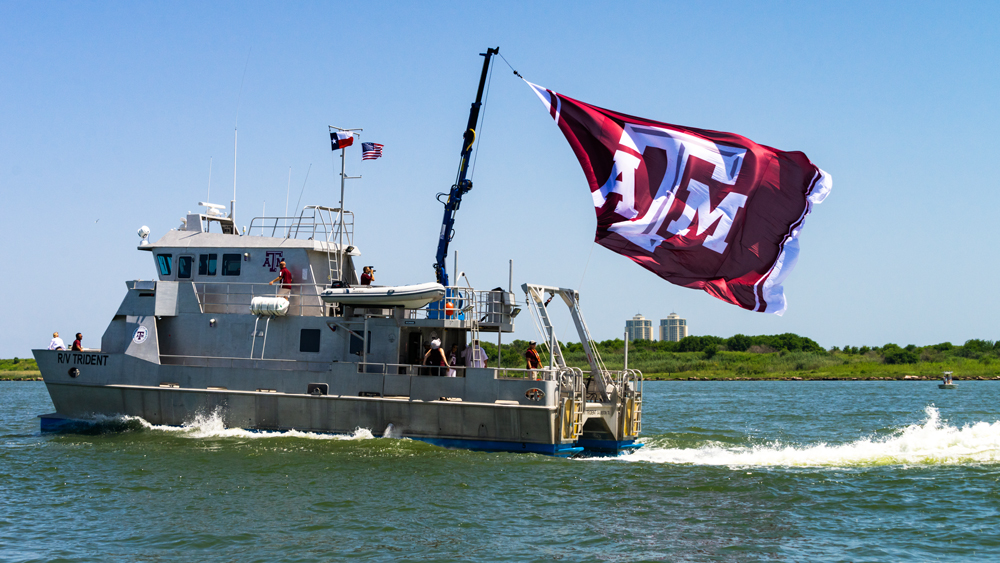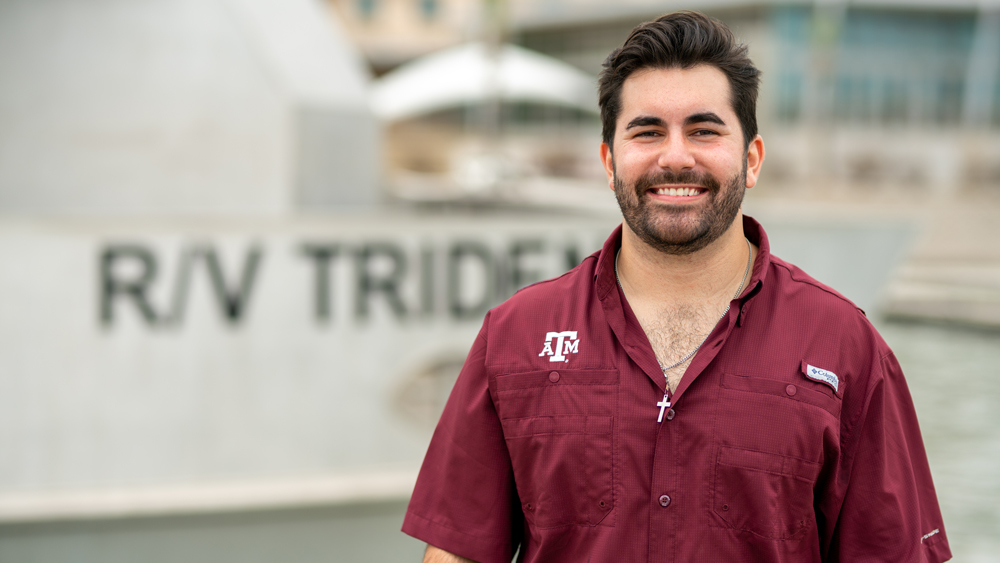
The Department of Ocean Engineering at Texas A&M University has established a new Master of Science (M.S.) in Ocean Engineering degree program offered exclusively at Galveston – highlighting the unique waterfront location and resources of its seaside campus.
This nonthesis, 30-credit program provides students with a unique education and career preparation filled with hands-on experience, direct access to the coast, on-the-water field data collection adventures, industry collaboration, close proximity to Houston and world-class resources.
And, in the case of graduate student Hayden Smith, closeness to home, friends and fishing.
Having graduated in May 2020 from Southwestern University in Georgetown, where he played football while studying physics and math, Smith always wanted to be an Aggie and eventually enter the engineering field.
“The fact that I would be able to get my degree in one year was really attractive,” said Smith. “I’ll have a bachelor’s and a master’s at 23 years old.”
While he originally had his mind set on aerospace engineering, Smith found his passion for ocean engineering during an undergraduate internship involving baleen whales.
“I just fell in love with the fact that I could be near the ocean and do a lot of different things in a field that's going to be increasingly growing over the next 10 to 20 years, and I'll be right in the middle of that,” said Smith.

Smith plans to apply his passion for coastal protection and fisheries into his career path by designing breakwaters or artificial reefs for game fish to have a refuge to reproduce and live safely. However, he explained that his studies have also piqued his interest in offshore renewable energy.
“I would like to be involved in ocean renewables, specifically waves, wind and tidal,” said Smith. “I think that's going to be really cool. And, once we can figure out how to do it efficiently and modular, I think there's going to be a high potential for growth and a big market all over the world.”
Ideal for students and professionals with an undergraduate degree or equivalent international degree in any engineering or related field, the thorough curriculum of the M.S. program covers a variety of ocean engineering topics and offers the opportunity to specialize in specific areas.
This was something that caught graduate student Morgan Humphrey’s eye.
“You can come in with any degree and sort of get this experience in ocean engineering,” she said. “I know that there are people from tons of different backgrounds in the program. There's another girl who came from environmental, a girl who came from mechanical, someone who came from a physics background. And we're all in the same classes and working together.”
Having obtained her environmental and civil engineering degree at Florida Gulf Coast University, Humphrey plans to utilize her experience in the M.S. program as a stepping stone into a career about natural disaster research.
“I’ve always been interested in the environment and, in particular, things like hurricanes and natural phenomenon like El Niño,” said Humphrey. “I grew up in Florida, so I’ve experienced hurricanes quite a bit. My family went through Hurricanes Katrina and Irma. And then I came here and went through Hurricane Laura. These are incredible natural phenomenon, and we cannot avoid them. And, as climate change continues to increase, they are becoming more prevalent and stronger.”
Humphrey explained that a background in ocean engineering would give her a foundation to base her research, particularly in the possibility of harvesting the energy produced by natural disasters to use as backup power sources for areas affected by such phenomenon.
“Obviously, I don't have experience in grad school beyond this, but I think (this program) is really unique because it focuses less on getting the grades and more on learning the process and enjoying the process and discovering passions in it,” said Humphrey. “Before, school has always been about studying and taking tests and getting the grade. This is about application.”